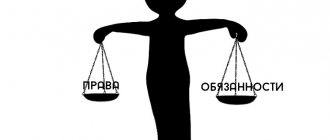1. The payer of a permanent annuity has the right to refuse further payment of annuity by repurchasing it.
2. Such a refusal is valid provided that it is declared by the annuity payer in writing no later than three months before the termination of annuity payment or for a longer period provided for in the permanent annuity agreement. In this case, the obligation to pay rent does not terminate until the entire redemption amount is received by the annuity recipient, unless a different procedure for redemption is provided for in the contract.
3. The condition of the permanent annuity agreement regarding the refusal of the permanent annuity payer from the right to repurchase it is void.
The contract may provide that the right to repurchase a permanent annuity cannot be exercised during the life of the annuity recipient or for another period not exceeding thirty years from the date of conclusion of the contract.
- Article 591. Terms for payment of permanent annuity
- Article 593. Redemption of permanent annuity at the request of the annuity recipient
What it is?
Differences in Concepts
There are three types of annuity - permanent, life annuity and dependent annuity. With a permanent annuity contract, payments are made without an expiration date. The parties to such an agreement can be both people and organizations.
Permanent rent, according to the Civil Code of the Russian Federation, can be paid in money, or in goods and services without cash payments. In this case, the payer can buy back the annuity by paying the entire required amount.
A life annuity agreement is concluded between individuals . The payer receives property under the contract, but must pay rent to its owner until the end of his (the owner’s) life. An annuity with maintenance or dependency is almost no different from a life annuity. The only thing is that the payer usually enters into an agreement with elderly people who will need to be helped financially and socially for the rest of their lives. According to the agreement, the lessor can support the owner or maintain and care for him.
Lifetime maintenance is the agreement itself between the disabled owner and the payer. If the agreement is dependent, this means that providing the owner of the home with everything necessary falls on the shoulders of the renter.
We consider the differences in more detail, as well as the pros and cons of a life annuity with and without maintenance, in a separate material.
Legal aspects
All features of an annuity agreement with contents are described in Articles 602–605 of the Civil Code of the Russian Federation. If the contract was concluded and not terminated, the property after the death of the dependent passes into the possession of the person who cared for him. The agreement is drawn up with a notary. The lawyer usually takes a commission from the value of the property - 0.5%.
Legal features of an annuity with lifelong maintenance:
- The contract must be notarized.
- The lessor receives only the property that belongs to the rentee.
- The rent payer not only helps the owner of the property financially, but also takes care of him - buys medicine and food, helps with cleaning, etc.
- The landlord cannot evict the owner at will - only mutually.
- Financial assistance is paid by the renter at least every month.
- The agreement can be terminated only at the initiative of the rentee.
Basic forms
There are three types of rent: monopoly, absolute and differential. We will dwell in more detail on the last two forms, since they are the main ones.
The following video will tell you about the theory of land rent, what will happen if it grows and similar issues:
Absolute
Absolute land rent is, simply put, a mandatory payment to the owner for land, since he will not give it away for free.
Such rent is paid even in cases where the allotment is extremely poor, unproductive and has no advantages.
Differential
Unlike absolute, differential land rent arises only when a plot stands out favorably against the background of others. Its fertility can be natural or economic. In the first case, the high quality of the land (chernozem, for example), the presence of deposits, availability of water, etc. is understood. In the second case, a good location. Thus, plots located closer to highways and large cities are more profitable for building houses.
When the profitability depends on the site itself, we talk about differential rent I. If the excess income is a consequence of investments in the technical side of the process (advanced cultivation technologies, the best machines), we are talking about differential rent II.
Procedure for provision
The obligations of the payer and payee are established by agreement. If the rent payer is late in payments, he pays interest to the owner under Article 395 of the Civil Code of the Russian Federation. The payer's obligations towards the annuity recipient include at a minimum:
- Presentation of the home.
- Nutrition.
- Providing clothing.
- If the owner cannot take care of himself, then take care.
Lifetime maintenance with dependents is carried out in accordance with Articles 602-605 of the Civil Code of the Russian Federation.
Financial rent
This is a method of repaying financial obligations, which involves making payments in equal installments over a specified period of time with a specified frequency. Such payments have their own economic name - annuity .
Example: at gr. Ivanov has a deposit in the bank. Amount = 2 million rubles, tariff rate = 15% per annum, deposit agreement term = 1 year. The agreement states that the bank pays interest on an annuity basis once a month. Therefore, gr. Ivanov receives 25 thousand rubles every month for a year. This is the amount of Ivanov’s monthly financial rent for the period of validity of the deposit agreement.
Definitions used in the financial annuity instrument
- The period is the period of time between payments.
- Term – the interval between the beginning of the first annuity period and the end of the final period.
- Ordinary annuity - payment is made at the end of the period.
- Advance – payment is made at the beginning of the period.
Considering the example about the deposit deposit of gr. Ivanov, given in the previous paragraph, we can say that this is an ordinary annuity, the period is 1 month, the amount is 25 thousand rubles, and the period is 1 year.
Required documents
Documents that the owner and renter need to collect:
- passports;
- application to the technical bureau. inventory;
- proof of ownership;
- a document that certifies ownership of the apartment;
- if the owner is married - consent of the husband/wife;
- real estate explication plan from the BTI;
- a certificate from the tax office confirming the absence of debt;
- a certificate from the housing office confirming that there is no debt for paying for utilities.
Registration cost
How much does it cost to sign a contract for an apartment for an elderly person? An annuity agreement with lifelong maintenance must be concluded with a notary. Therefore, this legal procedure is paid. The notary cannot independently set the amount - there is a specific rate for the fee. Most often, the rate is 0.5% of the property value.
According to the Civil Code of the Russian Federation, the amount of a notary's remuneration for certifying a transaction is limited. The duty cannot be less than 300 rubles, but should not exceed 20 thousand rubles. Therefore, the exact amount of the fee depends on the price of the property. The more expensive the apartments in the city or the house in the village, the greater the notary's fee will be.
The average area of apartments in Russia at the end of 2021 is 49 square meters. We calculate the average duty price based on the price per square meter in the regions of the Russian Federation. The duty amount is calculated as 0.5% of the average cost of an apartment in the region or city. In cases where 0.5% of the cost is more than 20 thousand rubles, the maximum amount of duty is set at 20,000 rubles:
| Region | Price per square meter | Duty amount |
| Moscow | 179.3 thousand rubles | 20 000 |
| Moscow region | 75.225 thousand rubles | 18 430 |
| Sochi | 118.3 thousand rubles | 20 000 |
| Saint Petersburg | 118.1 thousand rubles | 20 000 |
| Vladivostok | 96.3 thousand rubles | 20 000 |
| Sevastopol | 86.6 thousand rubles | 20 000 |
| Khabarovsk | 86 thousand rubles | 20 000 |
| Ekaterinburg | 71.2 thousand rubles | 17 450 |
| Kazan | 69.6 thousand rubles | 17 000 |
| Nizhny Novgorod | 65.17 thousand rubles | 16 000 |
| Novorossiysk | 63.1 thousand rubles | 15 600 |
| Ufa | 60.6 thousand rubles | 14 847 |
| Arkhangelsk | 59.5 thousand rubles | 14 577 |
| Tyumen | 59.5 thousand rubles | 14 557 |
| Rostov-on-Don | 59.3 thousand rubles | 14 528 |
| Syktyvkar | 58.7 thousand rubles | 14 381 |
| Irkutsk | 58.17 thousand rubles | 14 251 |
| Samara | 58 thousand rubles | 14 210 |
| Tula | 56.8 thousand rubles | 13 916 |
| Nizhnevartovsk | 56.16 thousand rubles | 13 759 |
| Kaliningrad | 56 thousand rubles | 13 720 |
| Permian | 55.65 thousand rubles | 13 634 |
| Belgorod | 55 thousand rubles | 13 475 |
| Novosibirsk | 54.8 thousand rubles | 13 426 |
Features of a permanent annuity agreement
The main feature of a permanent annuity is the perpetual nature of the obligation to pay the annuity assigned by the contract to the annuity payer. The perpetuity of the obligation to pay a permanent annuity means that its existence is not limited to any period of time, including the life of the recipient.
Recipients of permanent annuity can be any citizens, both those who transferred their property for payment of rent, and those who were indicated as recipients of annuity by citizens who transferred their property for payment of rent. Receipt of rent by citizens is not made dependent on their state of health, age, ability to work, etc.
Permanent annuity is the only type of annuity in which the recipient can be a legal entity, and the annuity itself is used to cover the special needs of the recipient, which are not personal or household. Non-profit organizations can be recipients of permanent rent, but only if this does not contradict the goals, objectives enshrined in their constituent documents, and special legislation. At the same time, the goals of the activities of non-profit organizations as such in accordance with Art. 2 of the Federal Law “On Non-Profit Organizations” [3], as well as special purposes defined by the same law for each of the types of organizations identified in it. Regarding individual non-profit organizations, it is necessary to make clarifications. Non-profit organizations created for a certain period or existing until the achievement of certain goals enshrined in the constituent documents cannot be recipients of permanent annuity, since they cannot enter into perpetual relations, and perpetuity is one of the main features of permanent annuity. Non-profit organizations such as institutions financed and created by the owner to carry out management activities cannot be recipients of permanent rent, because the law (clause 1 of Article 289 of the Civil Code of the Russian Federation) prohibits them from alienating or otherwise disposing of the property and property assigned to them, purchased from funds allocated according to the estimate [2]. But the same institutions can be recipients of permanent rent in cases where they alienate for the payment of rent property acquired through income-generating activities permitted to them and which they have the right to independently dispose of (clause 2 of Article 298 of the Civil Code of the Russian Federation).
The activities of non-profit foundations that pursue social, charitable, cultural, educational, and other socially beneficial goals, in particular, the goals of protecting the rights and legitimate interests of citizens, most closely correspond to the goals of the annuity agreement.
Thus, state (municipal) services (institutions) are created that accept single elderly citizens, or married couples, or disabled people for lifelong support, providing them with social services (cleaning an apartment, cooking, sanitary and hygienic, medical, transport, funeral services).
To a lesser extent, consumer cooperatives engaged in satisfying the material and other needs of their participants meet the goals of permanent rent. Associations or unions that unite commercial organizations created to represent and protect their common property interests do not correspond to the stated goals. These are, for example, unions and associations of credit organizations (Article 3 of the Law “On Banks and Banking Activities” [4]).
Recipients of permanent annuity cannot be commercial organizations, since the main purpose of their activities is to generate profit (clause 1 of Article 50 of the Civil Code of the Russian Federation), which they must receive from business activities (selling goods, performing work, providing services, etc. ), and not from the transfer of property into ownership of other persons for the payment of rent. This prohibition is explained by the fact that their entrepreneurial activity, inextricably linked with the turnover of property, is incompatible with the position of a rentier, “living on income in the creation of which he is not involved” [13, p. 320]. This limitation is also explained by the economic essence of rent: rent as an economic phenomenon represents income not related to entrepreneurial activity.
The subject composition of recipients of permanent annuity may change, since the essence of this type of contract - the unlimited obligation to pay it for any period of time - implies that the right to receive annuity can be inherited, and if the annuity recipient is a non-profit organization, it can be transferred by succession to newly formed legal entities. The right to receive a permanent annuity cannot be transferred by inheritance or succession to the state and commercial legal entities, since in accordance with Art. 589 of the Civil Code of the Russian Federation, only citizens and non-profit organizations can be recipients of permanent annuity [1]. However, the question remains unsettled as to who will receive the right to receive a permanent annuity in cases where the annuitant does not have heirs or his heirs refuse to accept the inheritance.
The law also allows for the transfer of the right to receive rent to other persons by assigning a claim, although the contract may prohibit this or provide for the need to coordinate this issue with the rent payer. It seems that, within the meaning of the law, the recipient of the annuity cannot assign his rights under an agreement concluded in his favor by another person, without the consent of this person. However, it should be noted that under any circumstances, prohibitions on the transfer of rights or their transition, introduced into the contract by agreement of the parties or provided for by law, should not deprive the contract of permanent annuity of an indefinite nature. Therefore, it is impossible to simultaneously agree in the contract on the conditions prohibiting a citizen from transferring the rights of a recipient of a permanent annuity and the condition that these rights cannot pass to other persons by inheritance. If this is allowed, then the permanent annuity will be transformed into a life annuity, and the annuity payer will be bound only for the life of the citizen who is the recipient of the permanent annuity.
The law calls the priority form of rental payments in a permanent annuity agreement monetary amounts, the amount of which is determined by the parties to the agreement. The parties are free to choose other forms: provision of things, performance of work or provision of services equivalent in value to the agreed amount of money. If there is no amount of rental payments in the agreement, the agreement is considered not concluded [12, p. 31].
The amount of permanent annuity is determined by the parties in the agreement. The law does not indicate its minimum size. The cash equivalent is not constant: during the execution of a permanent annuity contract, it increases in proportion to the increase in the minimum wage determined by law. The parties have the right to refuse these changes or the principle of these changes by establishing a different principle. This decision must be reflected in the terms of the contract.
Judicial practice knows the case of considering a case of declaring a permanent annuity contract not concluded due to the uncertainty of the size of the permanent annuity [5].
Thus, Vladimir Mikhailovich Stepanov filed a claim with the Arbitration Court of the Bryansk Region against the open joint-stock company "Main Oil Pipelines "Druzhba" for recognition of the permanent annuity agreement No. 1305 dated August 25, 1997 as not concluded and the obligation of OJSC "Main Oil Pipelines "Druzhba" to return preferred shares to the plaintiff. joint stock in the amount of five pieces.
By decision of the Arbitration Court of the Bryansk Region dated May 12, 2003, the claims were rejected. The case was not considered by the appellate court. Disagreeing with the decision of the arbitration court, Stepanov V.M. filed a cassation appeal, in which he asks to cancel the appealed decision. At the same time, the applicant of the complaint refers to the unfoundedness of the court’s conclusions and believes that agreement No. 1305 does not define the specific amount of the rent to be paid, that is, the subject of the agreement is not defined, the agreement is not concluded. In addition, the applicant refers to the fact that the defendant did not provide security for the fulfillment of his obligations in violation of the requirements of paragraph 2 of Art. 587 Civil Code of the Russian Federation.
The representative of JSC Trunk Oil Pipelines Druzhba rejected the arguments of the cassation appeal, considers the decision legal, and asks that it be left unchanged.
Having studied the case materials, listened to the representative of Druzhba Trunk Oil Pipelines OJSC, and discussed the arguments of the cassation appeal, the cassation court finds no grounds for satisfying the cassation appeal in connection with the following. As can be seen from the case materials, between OJSC “Main Oil Pipelines “Druzhba” (the rent payer) and V.M. Stepanov. (rent recipient) a permanent annuity agreement No. 1305 dated 08/25/1997 was concluded, according to which Stepanov V.M. undertook to transfer free of charge to JSC Trunk Oil Pipelines Druzhba the ownership of preferred shares of the Joint Stock Oil Transport Company Transneft with a nominal value of 1000 rubles. in the amount of 5 pieces at a price per share of 265,000 rubles, for a total of 1,325,000 rubles, and OJSC "Main Oil Pipelines "Druzhba" assumed the obligation, in exchange for the received property, to pay the rent recipient an amount indefinitely, hereinafter referred to as "rent payments" . The amount of rent payments is equal to the profitability of the rent payer’s production activities for the previous half of the year before payment, multiplied by the amount of rent. In this case, the amount of rent payments cannot be less than the rate of the Savings Bank of the Russian Federation on a time deposit for individuals for six months at the location of the rent payer, calculated for the amount of rent.
According to clause 4 of the agreement, the rent payer, in order to secure its obligations under this agreement, undertakes to provide a guarantee to the Transneft Joint Stock Oil Transport Company. Referring to the fact that in agreement No. 1305, when determining the subject of the agreement, a certain monetary amount of the rent paid is not indicated and the details of the guarantee agreement are not indicated in the agreement, V.M. Stepanov filed a claim with the arbitration court to recognize the permanent annuity agreement No. 1305 dated August 25, 1997 as not concluded.
The arbitration court recognized the permanent annuity agreement No. 1305 dated August 25, 1997 as concluded. When making its decision, the arbitration court proceeded from the fact that, in accordance with Art. 590 of the Civil Code of the Russian Federation, permanent annuity is paid in money in the amount established by the agreement. The arbitration court came to the correct conclusion that clause 1 of the permanent annuity agreement No. 1305 dated 08/25/1997 established the amount of annuity payments; although the amount in money is not directly indicated, it is determined through the interest rate of the Savings Bank of the Russian Federation or by the profitability of the enterprise, which does not contradict the requirements of Art. 590 Civil Code of the Russian Federation.
The arbitration court also justifiably rejected the plaintiff’s arguments that the defendant did not provide security for the fulfillment of his obligation. Pursuant to clause 4 of the agreement and in accordance with clause 2 of Art. 587 of the Civil Code of the Russian Federation, JSC Trunk Oil Pipelines Druzhba presented the plaintiff with a guarantee agreement No. D-1305 dated 08/25/1997, the guarantee agreement was received by V.M. Stepanov.
Guided by paragraph 1. Art. 287, art. 289 of the Arbitration Procedure Code of the Russian Federation, the court decided to leave the decision of the Arbitration Court of the Bryansk Region of May 12, 2003 in case No. A09-654/03-10 unchanged, and the cassation appeal was not satisfied.
An important, although not essential, condition is the frequency of payment of permanent annuity, which the parties have the right to establish in accordance with the agreement reached. If the parties have not included this condition in the contract, the frequency of rent payment is determined by law. Since such rent is not intended to satisfy the personal (household) needs of citizens, a fairly long period for its payment has been established - quarterly (Article 591 of the Civil Code of the Russian Federation).
Despite the fact that a permanent annuity contract is of an open-ended nature, it can be terminated. First of all, the obligation to pay a permanent annuity can be terminated by agreement of the parties to terminate the contract. In this case, the parties themselves determine on what basis this happens, in particular, whether the property and already paid rent payments are returned, whether any compensation is paid to the rent recipient or not, etc. The rent recipient may at any time refuse to receive further annuity payments, thereby terminating the obligation to forgive the debt (Article 415 of the Civil Code of the Russian Federation). However, if a permanent annuity was established in his favor by another person, then if the recipient of the annuity renounces his rights, the person who established the annuity can use them. Other methods of terminating the obligation to pay permanent annuity, provided for in Chapter. 26 of the Civil Code of the Russian Federation, with the exception of termination of the obligation by fulfillment (Article 408 of the Civil Code of the Russian Federation).
The obligation to pay permanent annuity may also terminate as a result of accidental destruction or accidental damage to property transferred for payment of annuity of this type, if the property was transferred for payment of annuity for a fee and the payer demands termination of the obligation to pay annuity or change the terms of its payment (clause 2 Article 595 of the Civil Code of the Russian Federation) [8, p. 1].
A special case of termination of a permanent annuity contract is the redemption of a permanent annuity. Redemption of annuity consists in the fact that the payer of the annuity pays to its recipient simultaneously or in another way a sum of money equal to the price of the constant annuity. The repurchase can be carried out at the initiative of either party. The price of a permanent annuity can be established in the contract. If there is no condition on the redemption price of the annuity in the contract, then its redemption is carried out at a price determined in accordance with the law. If the property was transferred for the payment of a permanent annuity for a fee, then the redemption price of the permanent annuity corresponds to the annual amount of the annuity payable (clause 2 of Article 594 of the Civil Code of the Russian Federation). If the property was transferred for the payment of permanent annuity free of charge, then the redemption price of the permanent annuity is composed of the annual amount of annuity payable and the price of the transferred property. The price of property is determined according to the rules provided for in paragraph 3 of Art. 424 of the Civil Code of the Russian Federation (clause 3 of Article 594 of the Civil Code of the Russian Federation) [11, p. 58].
The contract is terminated with the receipt of the entire redemption amount to the recipient of the permanent annuity, unless the parties have provided for a different redemption procedure.
The parties may provide in the agreement a prohibition on the redemption of annuity during the life of its recipient or for another period not exceeding 30 years from the date of conclusion of the agreement. But the parties cannot establish in the contract a condition on the waiver of the right to buy out the rent by its payer, since in accordance with clause 3 of Art. 592 of the Civil Code of the Russian Federation, such a condition will be void [7, p. 8].
The payer of a permanent annuity is completely free to decide on its redemption. The law does not establish any grounds for the payer to justify his refusal to further pay rent. In contrast, the recipient of the annuity is limited in demanding the redemption of the permanent annuity on the grounds listed by law, as well as those provided for by the contract.
To exercise his right to repurchase, the payer must comply with a number of formalities. When concluding an agreement, it is advisable to stipulate the period during which the annuity recipient will be notified of the redemption. The minimum period for information is established by law: at least 3 months before the future termination of annuity payment. This rule applies unless a longer period is specified in the contract. A permanent rent payer who decides to buy out must declare this in writing [10, p. 57].
In order to protect the interests of the annuity recipient, the law establishes that the obligation to pay annuity from the payer is not removed until the entire ransom amount is paid to the annuity recipient. However, this rule of law is dispositive and is valid only when the contract does not provide for a different procedure for the redemption of rent.
In certain cases, the recipient of a permanent annuity may demand redemption by the payer, which will entail termination of the contract. The list of grounds on which the recipient of the annuity has the right to demand its redemption by the payer is named in Art. 593 Civil Code of the Russian Federation. This list is not exhaustive; other cases may be specified in the contract. These grounds are associated, first of all, with the payer’s violation of the obligations assumed under the contract.
First of all, this is a delay in the payment of rent payments for more than one year. This reason, although one-time, is of a gross nature of failure to fulfill an assumed obligation. This basis differs from another, indicating the insolvency of the payer of the constant annuity - this is a constantly operating factor. It also equates to the serious danger of possible future non-payments against the amounts and timing of rental payments agreed upon in the contract, which are so important for the recipient of a permanent annuity. The forecast of the probable danger of non-payments should be based on circumstances that clearly indicate that the rent will not reach the recipient in the near future [9, p. 157]. Another reason on which the recipient has the right to demand its redemption is the violation by the payer of its obligation to ensure the payment of rent (Article 587 of the Civil Code).
The last reason named in Art. 593 of the Civil Code of the Russian Federation, is associated with such a disposal by the payer of real estate transferred to him for the payment of rent, by virtue of which it came into common ownership or was divided between several persons, who thereby became rent payers. It does not matter whether the common property is joint or shared. Thus, the rent recipient has several payers, which violates the interests of the rent recipient, who has entrusted the property to one rent payer personally. The recipient’s claim to the annuity payer is a measure to protect his significant interest [6, p. 7].
The Civil Code also grants the annuity recipient the right to demand redemption of the annuity by the payer in other cases provided for by the contract, which may not be related to the failure of the annuity payer to fulfill the contract.
Bibliography
Normative legal acts:
1. Civil Code of the Russian Federation. Part two: Federal Law of the Russian Federation of January 26, 1996 // Collection of Legislation of the Russian Federation. – 1996. – No. 5. – Art. 410.
2. Civil Code of the Russian Federation. Part one: Federal Law of the Russian Federation of November 30, 1994 // Collection of Legislation of the Russian Federation. – 1994. – No. 32. – Art. 3301.
3. Federal Law of the Russian Federation “On Non-Profit Organizations” of January 12, 1996 // Collection of Legislation of the Russian Federation. – 1996. – No. 3. – Art. 145.
4. Federal Law of the Russian Federation “On Banks and Banking Activities” dated February 3, 1996 // Collection of Legislation of the Russian Federation. – 1996. – No. 6. – Art. 492.
Materials of judicial practice:
5. Resolution of the Federal Arbitration Court dated September 12, 2003. Case No. A09-654/03-10 // The resolution was not officially published.
Special literature:
6. Vasiliev S. Ownership of an apartment without taxes // Home lawyer. – 2002. – No. 21. – P. 7.
7. Gubin E.P. Housing issue: the rent agreement requires careful execution // Nezavisimaya Gazeta. – 2001. – February 23. – P. 8.
8. Krasnyuk V. How can a poor relative get rich? // Interfax-AIF. – 1996. – May 20. – P. 1.
9. Makarov G. Legal methods of protecting citizens from encroachments on their rights when making housing transactions // Economy and Law. – 1997. – No. 5. – P. 157.
10. Morunova E. Lifetime annuity and lifelong maintenance with dependents // Bulletin of notarial practice. – 2003. – No. 5. – P. 58.
11. Sork D. Rent: Legal workshop // Director. – 1996. – No. 9. – P. 58.
12. Khokhlov S. A. Do not rush to become a rentier. Meet the new Civil Code // Man and the Law. – 1996. – No. 12. – P. 31.
13. Khokhlov S. A. Rent and lifelong maintenance with dependents // Civil Code of the Russian Federation. Part 2. Text, comments, alphabetical index / Ed. O.M. Kozyr, A.L. Makovsky, S.A. Khokhlova. – M.: Yurist, 1996. – P. 320.
Is it possible to terminate and under what conditions?
The recipient of the rent, the owner of the property, has priority rights to terminate the rental agreement.
If the payer grossly violates the terms of the contract - does not pay payments, does not take care of the annuitant, although he is obligated, the contract is terminated. The annuity recipient, in turn, may demand that the payer return the property and redeem the annuity. The minimum amount of rent redemption is the amount of rent payments for one year. Compensation for damage will be required if the payer did not maintain the safety of the property. The payer must reimburse all expenses and losses during the use of the rentee's property.
If the annuity recipient unilaterally terminates the contract, the payer cannot demand a refund. The renter also has judicial protection - the recipient can unilaterally terminate the rent agreement only in court. Moreover, the owner is obliged to prove his case and the improper performance of duties by the payer in accordance with the Civil Code of the Russian Federation. The lessor can challenge the property owner's decision in court.
Conditions for termination of the contract by the recipient:
- The transaction was declared invalid - the terms of the contract were violated, the transaction was concluded under pressure, etc.
- Payments are overdue for more than 1 year.
- The court declared the renter insolvent.
- The terms of the contract were not fulfilled.
We discuss in more detail the question of how and under what conditions a life annuity agreement, including one with lifelong maintenance, can be terminated in a separate article.
Capitalization method
The land rent capitalization method is used when it is necessary to evaluate built-up and empty (undeveloped) plots of land. In order for the method to be applied, it must be possible to obtain ground rent (LR) from a given plot.
The algorithm of actions here is as follows:
- Definition of rent;
- Calculation of the value of the corresponding capitalization ratio;
- Access to the market value of the plot through the capitalization of rent.
In the form of a formula, this can be represented as follows: C (cost) = D (income, rent): K (coefficient).
Let's decipher the concepts.
- Capitalization of land plots is the determination of all possible land income at the moment, converting them into current value.
- The capitalization rate is the rate at which net income is converted into value.
Now there are four main ways of carrying out capitalization of agricultural land (assessment of agricultural allotment):
- The plot is considered as monetary capital, therefore the bank’s rate on a long-term loan is taken as the coefficient. The method is effective in conditions of economic stability and is of little use during a crisis;
- For capitalization, an index established by the state is used. This is how the cadastral price is calculated;
- Construction of a summary (otherwise, cumulative) model. The basic, risk-free rate (the bank rate of return on deposits is taken as its basis) is increased by a risk premium (3-5% depending on the subject of the Russian Federation);
- Market squeeze. The coefficient is determined based on data on the sale of similar plots. The income from them is divided by the price at which they were sold.
Next we will talk about the main forms of land rent.
Where and how to find participants?
Close people
Often, close relatives of the owner - children, grandchildren, nephews - become rent payers. Elderly people can be sure that they will be taken care of. Relatives do not have to pay a large commission for registering an inheritance with a notary. But the owner may be a lonely person who cannot turn to the younger generation for help.
Firms
Often the payers are not individuals, but organizations. They can prove their solvency and often assume all responsibilities for caring for the elderly. Moreover, if an organization specializes in such transactions, it may have caregivers on its staff - professional assistants for disabled people.
Organizations also have a significant disadvantage - companies are interested in profits, so you need to be careful with them. It is believed that transactions with lifelong dependency are a danger for the elderly. Sometimes this is also a minus in the career of the realtor who certifies the contract. Only close people can care for older people with care and warmth. Therefore, such transactions usually do not concern anyone from the outside.
Rent payers can be found among adults and wealthy citizens who are reliable and would like to buy an apartment on favorable terms. It is better to look for renters among those who have enough time to care for an elderly person.
Economic rent
Rent in economics is one of the fundamental concepts. Let's look at this economic term using an example: Ivanov and Petrov work at a factory, Ivanov is a lower-class turner, and Petrov is a higher-ranking one. Ivanov receives a salary close to the minimum possible, and Petrov receives 2 times more.
Why is there such a difference in income under the same initial conditions? The owner of the enterprise pays Petrov more because he strives to keep a valuable employee at his enterprise to fulfill complex orders.
The employer pays a salary bonus, economically stimulating Petrov to work at his plant. The difference in the salaries of Ivanov and Petrov, equal to the amount of the bonus, is economic rent .
Conclusion: economic rent is payments to the owner of a certain factor that exceed its alternative value.
In our example, Petrov has high professional skills; the alternative value of his skills is the ordinary skills of his comrade Ivanov. Therefore, Ivanov receives an ordinary salary, and Petrov receives the same salary plus an allowance for experience and skills.
What to expect from deals?
Benefits for all parties
- For the payer: the opportunity to purchase an apartment at a reduced price. Two minimum wages are often less than mortgage payments. An annuity agreement with lifetime maintenance is especially useful for large cities. In Moscow, city residents can afford an apartment until they are closer to 30-40 years old, and pay off the mortgage until retirement. Therefore, the idea of obtaining square meters in this way seems attractive.
- For the recipient: to ensure a calm and secure old age. The recipient is protected by law on all sides, so older people are willing to make a deal.
Risks, pitfalls, bottlenecks and ways to get around them
For the payer
- Elderly people burdened with relatives. Distant relatives can claim ownership of the apartment. It is better to discuss all aspects of inheritance with the owner of the property in advance.
- Probability of deal termination. There are fewer scammers among rent recipients, but you still need to be careful when choosing an owner. Old people can be suspicious and suggestible.
What is the meaning of a lifetime annuity agreement?
The meaning of such legal relations is to receive permanent income until the end of life in exchange for the transfer of property rights. This, one might say, is a home sale extended over time, which occurs as follows:
- The citizen who receives the rent sells his apartment for part of the market value or gives it to the payer. A feature of such agreements is the mandatory restriction of the rights of the new owner to dispose of housing. For example, he cannot sell such an apartment or rent it out without the consent of the former owner. A contract of sale or gift must undergo state registration.
- The payer in return receives the obligation to regularly transfer funds to the recipient and provide pre-agreed services. For this purpose, citizens enter into a notarial agreement.








